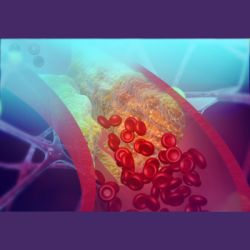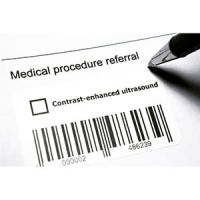Findings from a large study published in Radiology: Cardiothoracic Imaging show that contrast agents that are used to improve views of the heart on an MIR carry a low risk of allergic reactions, vomiting and other acute adverse events.
Cardiac MRI is a frequently used tool for heart imaging. Most cardiac MRI exams use intravenous gadolinium-based contrast agents (GBCAs) as it offers them improved visualisation of the heart muscle and blood flow. Contrast-enhanced MRIs are used to assess scars to heart tissue and facilitate detection of cardiac ischaemia. They are also used to evaluate and identify cardiomyopathy and myocarditis.
GBCAs use an ion of the metal gadolinium to work, which could be toxic to humans. However, to improve its safety, the ion is bound in a molecule called a ligand. There are two types of GBCAs: linear or macrocyclic depending on the type of ligand that is used. However, several studies show that some trace amounts of gadolinium ions may remain in the body following repeated GBCA administration. This is more likely with linear GBCAs compared to macrocyclic GBCAs. In order to prevent the risk of this happening, the European Medicines Agency (EMA) suspended the marketing authorisation of linear GBCA types in 2017, except in liver imaging. There are still no regulatory restrictions related to the use of linear GBCAs in the U.S., but the FDA recommends that physicians should consider gadolinium retention characteristics when choosing GBCAs.
In this study, researchers assessed the impact of EMA's regulatory decision. The study included 154,779 patients who underwent cardiac MRI. Nearly 95% of the participants received GBCA. Linear GBCAs were used in 15.2% of examinations before and in 2017, but this decreased to less than 1% in 2018 and 2019.
Study researchers also evaluated GBCA-associated acute adverse events which were classified as mild, moderate or severe. Mild events included allergic reactions such as hives and wheezing; moderate or severe events included chest pain and arrythmia. In the study group, there were 556 acute adverse effects in 145,855 contrast-enhanced MRIs. Only 47 were classified as severe. Therefore, these findings suggest that the administration of GBCA for cardiac MRI is safe for the majority of patients and that macrocyclic GBCAs have a better acute safety profile compared to linear GBCAs. They can thus be used for cardiac MRIs to evaluate myocardial scarring, ischaemia, cardiomyopathy and myocarditis.
The researchers also observed that adverse events occurred even without GBCA administration. There were 8924 cases in the study group that did not use any contrast agents. Even in this group, 231 examination-related adverse events were reported, which mainly included anxiety and shortness of breath. However, while the use of GBCAs appears to be safe in cardiac MRI, it is still important to identify vulnerable populations such as patients with orthostatic shortness of breath, prior adverse GBCA reactions and terminal renal insufficiency and exercise caution in these patients.
Source: RSNA
Image Credit: iStock


























